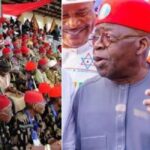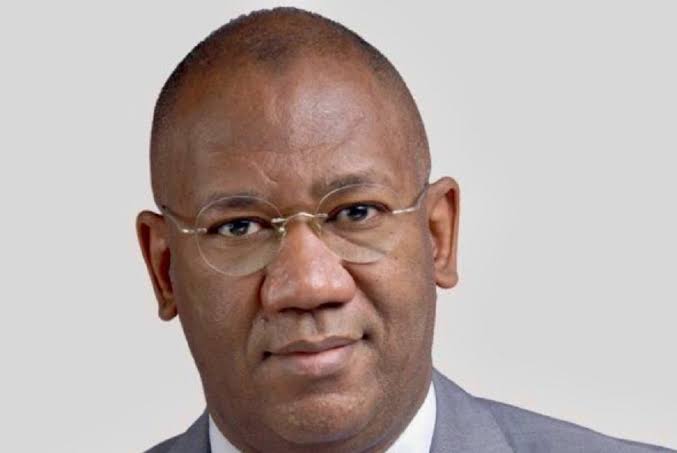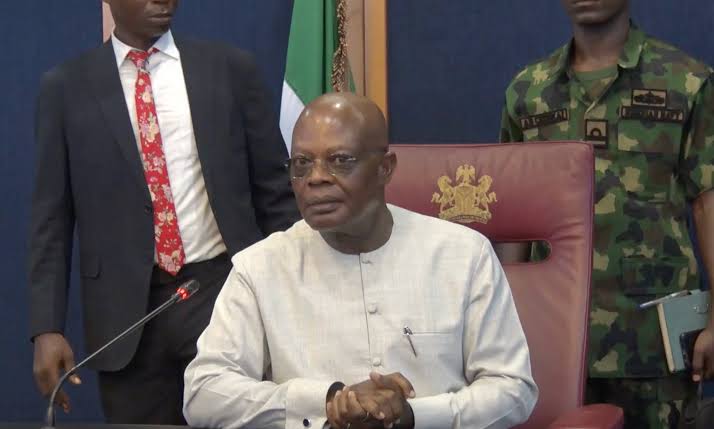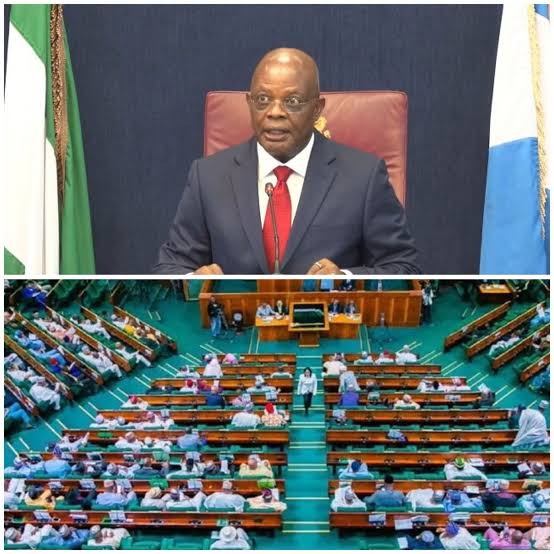The long-standing tension between state governors and local government councils in Nigeria has intensified following the landmark Supreme Court ruling granting financial autonomy to the 774 local governments in the country. This decision, delivered on July 11, 2024, marked a crucial step toward decentralising power and ensuring financial independence for local governments. The ruling directed the Accountant-General of the Federation to pay local government allocations directly into their accounts, cutting off the long-standing practice of state governors controlling these funds.
However, findings reveal that many governors, desperate to maintain their grip on these funds, have devised covert methods to bypass the Supreme Court’s order. This report critically examines the disturbing trend where local government chairmen are being coerced into secret deals, involving oath-taking, to continue remitting funds to state accounts—a practice that undermines the essence of financial autonomy and exposes the deep-seated rot in Nigeria’s political system.
A Landmark Ruling, But What Changed?
The Supreme Court’s decision to grant financial autonomy to local governments was hailed as a victory for democracy and grassroots governance. For years, local governments, despite being constitutionally recognised as the third tier of government, had been shackled by the financial control of state governments. This control often led to the diversion of funds meant for grassroots development to other state-level projects, leaving local governments unable to fulfil their mandates.
To further consolidate this ruling, the Federal Government, on August 20, 2024, set up a 10-member inter-ministerial committee, chaired by the Secretary to the Government of the Federation, George Akume. The committee was tasked with implementing the court’s decision. According to reports, the committee has completed its assignment and is set to submit its report on October 14, raising hopes that the Supreme Court’s directive will soon become operational.
Governors’ Desperate Moves: Secret Deals and Oath-Taking –
Despite the Supreme Court ruling, revelations from sources, including a local government chairman and a political party candidate, suggest that some governors have not given up on their quest to control council funds. A local government chairman from a southwestern state, speaking anonymously, disclosed how he and his colleagues were pressured into pledging allegiance to the governor, effectively rendering the financial autonomy granted by the court meaningless.
“We met the governor after the Supreme Court judgment and pledged our allegiance. We told him we would abide by his directives regarding our local government funds. While it may seem voluntary, it wasn’t. Something propelled us to do it. Without that pledge, I wouldn’t be the local government chairman today,” the chairman confessed.
This revelation underscores the depth of the systemic corruption that permeates Nigeria’s political system, where power and influence supersede the rule of law. Governors, in their bid to retain control over local government funds, have resorted to backroom deals and coercion, forcing local government officials to pledge their loyalty in exchange for their positions. This pattern of control is not new, but the recent court ruling has pushed governors to employ more covert methods, including the sinister act of oath-taking.
A senior media officer in the same state corroborated the chairman’s account, revealing that part of the agreement involved continuous remittance of funds to a state-controlled account. The deal is structured in such a way that after paying local government workers, including teachers, the chairman would be allowed to keep a portion of the funds as a security vote, while the remainder would be funnelled back to the state.
“The chairmen were asked to pledge allegiance to the governor and agree to remit the funds when the direct allocation starts. After paying workers, they are allowed to keep N5 million as a security vote, and other officers receive running costs. But the bulk of the funds are returned to the state,” the media officer disclosed.
This arrangement not only defeats the purpose of financial autonomy but also perpetuates a culture of political subservience, where local government officials, rather than being accountable to the people they serve, are beholden to state governors who control their political fates.
Local Government Candidates: Oaths of Allegiance for Party Clearance –
The web of corruption extends beyond those already in office. A local government chairmanship candidate from one of the southern states revealed also that he and his colleagues were required to take an oath pledging to follow the governor’s directives regarding local government funds before they could be cleared as candidates for their political party.
This practice, while seemingly unremarkable in the context of Nigerian politics, is a stark reminder of the deep-rooted influence state governors wield over local governance. By compelling candidates to take such oaths, governors ensure that even before elections are held, they have a firm grip on the future financial decisions of local governments.
“We took an oath to follow the governor’s directives on local government funds. It was a necessary condition for our candidacy, and I don’t think it’s a bad thing,” the candidate admitted.
While this may appear as a pragmatic move for political survival, it raises serious ethical and legal questions about the integrity of Nigeria’s local government elections. If local government chairmen are already beholden to governors before assuming office, can they truly serve the interests of their constituents? Or are they merely pawns in a larger political game?
Attempts to gather similar accounts from local government chairmen in the North-East proved futile, as many declined to comment on the matter. Their refusal to speak highlights the pervasive fear that grips local government officials, who are unwilling to risk their political careers by exposing the illegal practices they are part of.
According to a political analyst in Sokoto State, Abdul AbdulKareem, it is unrealistic to expect local government chairmen to openly admit to such deals. “Why would anyone deceive themselves by asking these chairmen such questions? None of them will admit to it because they are all appointed for a purpose. They can’t go against the instructions of their governors or party leaders,” AbdulKareem stated.
This widespread culture of silence is indicative of the level of control governors exert over local governments. In many cases, local government chairmen are appointed not based on merit or public service, but on their loyalty to the governor and their willingness to comply with the governor’s demands.
A Call for Resistance: Wale Adedayo’s Challenge –
Not all local government chairmen are willing to succumb to the pressure from governors. Wale Adedayo, the former chairman of Ijebu East Local Government in Ogun State, has been an outspoken critic of the practice of diverting local government funds. Adedayo’s refusal to remit funds back to the Ogun State Government led to his removal from office, but his defiance has sparked a national conversation about the need for local government officials to resist the overreach of state governors.
Adedayo urged his colleagues to stand firm against any attempts to coerce them into returning their allocations to state governments. He also called on the Federal Government to establish mechanisms to track and monitor local government funds, ensuring that they are used for their intended purposes.
“Quality local government chairmen won’t agree to any arrangement that allows governors to take their funds. The Federal Government should revisit the system used during President Shehu Shagari’s tenure, where presidential liaison officers were appointed to monitor local governments. This would help prevent the diversion of funds,” Adedayo advised.
Adedayo’s resistance, however, is not without consequences. His removal from office serves as a warning to other local government chairmen who may be considering defying their governors. The political system in Nigeria is deeply entrenched in patronage and power dynamics, making it difficult for local government officials to act independently.
A Need for a New Revenue-Sharing Formula :
Another critical issue compounding the financial challenges facing local governments is the current revenue-sharing formula. Under the existing arrangement, local governments receive only 20.6% of the funds from the federation account, while state governments take 26% and the Federal Government takes a whopping 52%.
Babatunde Emilola-Gazal, the immediate past chairman of the Ogun State chapter of the Association of Local Government of Nigeria (ALGON), described this formula as “unfair and skewed” in favour of the state and federal governments. He argued that even if the Federal Government were to start paying allocations directly to local governments, many councils would still struggle to meet their financial obligations under the current formula.
“There’s no justification for the revenue-sharing formula. How can 774 local governments take just 20.6%, while the Federal Government takes 52%? This formula is inappropriate and needs to be revisited,” Emilola-Gazal stated.
This call for a review of the revenue-sharing formula is not new, but the recent push for financial autonomy has brought it to the forefront of national discourse. Without a significant increase in their share of the national revenue, local governments will remain financially crippled, unable to provide basic services to their constituents.
The Role of ALGON and the Fight for Financial Autonomy
The Association of Local Governments of Nigeria (ALGON) has also played a pivotal role in advocating for local government financial autonomy. While the leadership of the organisation has been accused of sometimes aligning with state governors, the board of trustees, led by Mohammed Abubakar, has been vocal in pushing for the implementation of the Supreme Court ruling.
Abubakar acknowledged the pressure local government chairmen face from their governors but assured that ALGON’s trustees were committed to ensuring that local governments receive their full allocations without interference.
“ALGON is on the ground, making sure that the judgment of the court is implemented,” Abubakar said.
However, the fight for financial autonomy is far from over. As long as state governors continue to wield significant political influence over local government officials, the implementation of the court’s ruling will remain a contentious issue.
Conclusion: The Path to True Local Government Autonomy –
The Supreme Court’s ruling on local government financial autonomy was a watershed moment in Nigeria’s democratic journey, offering a glimmer of hope for grassroots development. However, the covert deals between governors and local government chairmen threaten to undermine the very essence of this autonomy.
To ensure that local governments can truly operate independently, there must be a concerted effort by the Federal Government, civil society, and the media to expose and resist these underhanded tactics. The culture of oath-taking and remittance deals must be rooted out, and local government officials must be empowered to act in the best interests of their constituents.
Furthermore, the revenue-sharing formula must be revisited to ensure that local governments receive a fair share of the national wealth. Without these reforms, local governments will remain under the stranglehold of state governors, unable to fulfil their constitutional mandate.
In the end, the battle for local government autonomy is not just about financial control—it is about reclaiming the democratic ideals of accountability, transparency, and service to the people. Only by dismantling the corrupt power structures that have held local governments hostage for decades can Nigeria truly achieve the decentralised governance it so desperately needs.
_Osaigbovo Okungbowa, A Senior Political Correspondent,
The Atlantic Post.











